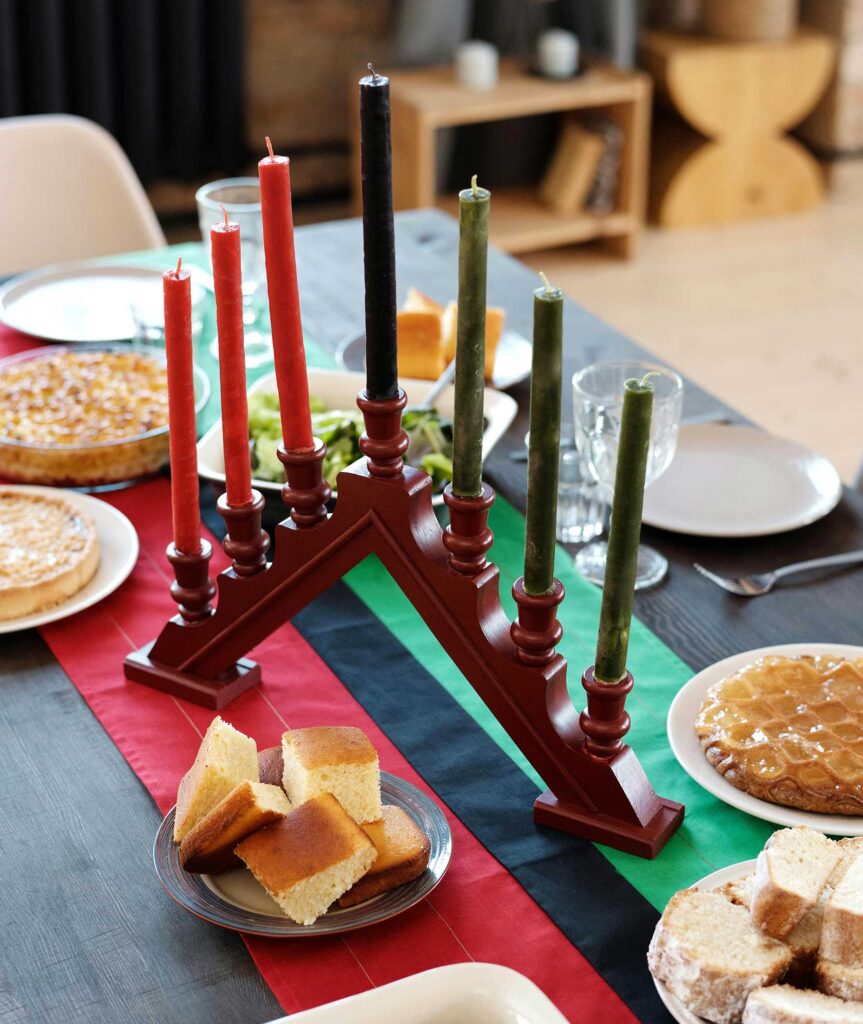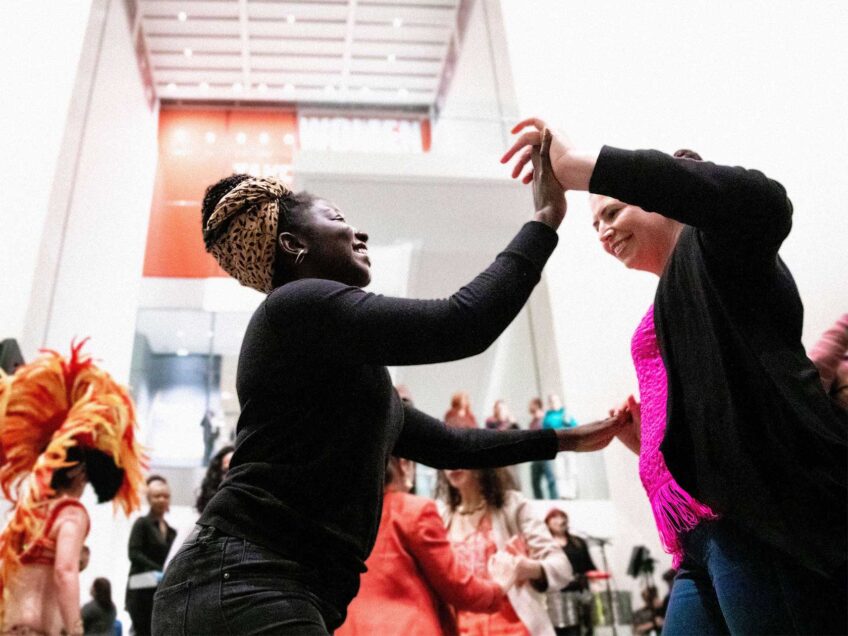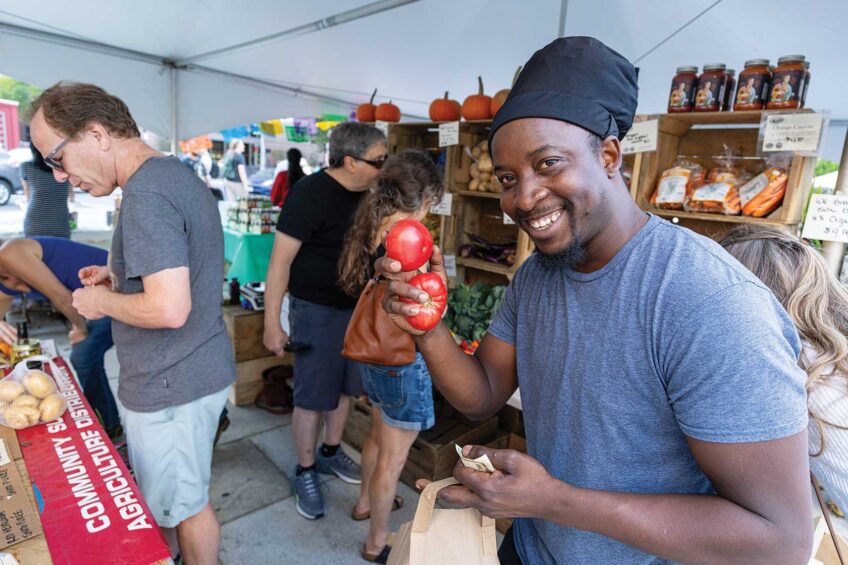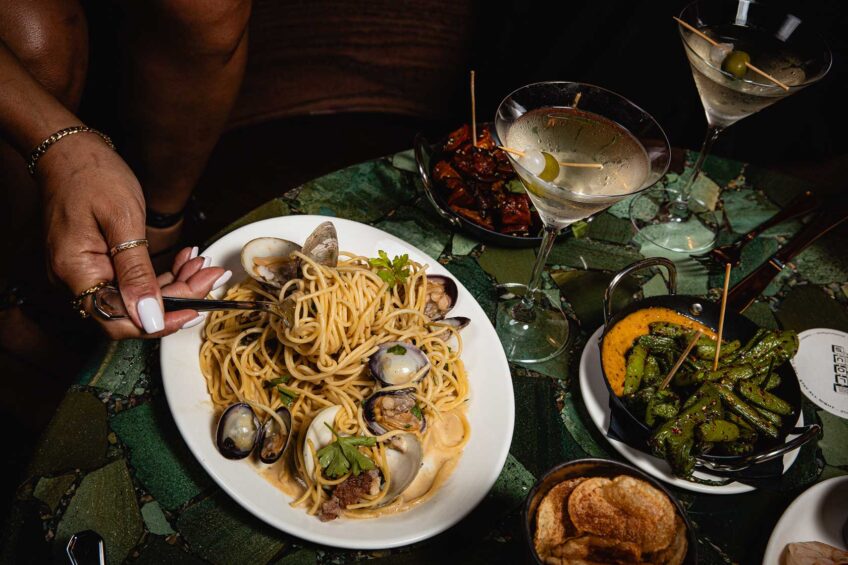
From slavery to freedom, Black people in America have sought new ways to heal from our slavery experiences and rebuild positive lives despite ongoing systemic racism. Dr. Maulana Karenga created the seven principles of Kwanzaa in 1966, amid riots and racial turmoil. Kwanzaa means “first fruits” in the Swahili language of East Africa, which is also used to name each principle. The principles of Kwanzaa rest on the idea that Black people should celebrate themselves to create a stronger and more dynamic future for our children. Kwanzaa is now a holiday that empowers Black people to honor our ancestral roots and follow the roadmap of common values and principles to achieve success. The seven principles are:
Umoja — Unity
Umoja is the first day of Kwanzaa. This means to strive for and maintain unity in the family, community, nation and race. When we speak of Unity, we light a black candle because it represents all the shades of our people. Our strength starts with a family focused on love and working in unity.
Kujichagulia — Self-Determination
To define ourselves, name ourselves, create for ourselves and speak for ourselves. On the second day of Kwanzaa, we light a red candle. All red Kwanzaa candles represent the blood of our enslaved ancestors, the blood shed for our freedom in America and for the struggles yet to come. Because of this principle we now have the power to elect leaders who represent us when we vote, and we proudly say that we are Black and/or African American!
Ujima — Collective Work and Responsibility
To build and maintain our community together and make our brother’s and sister’s problems our problems and to solve them together. On this day, we light the green Kwanzaa candle. This represents our hopes for our children’s successful futures and our hope to own and keep land and property. Building community has had many challenges and champions. Some of the superstars and fearless warriors — many of whom you know — have moved the agenda to fight for better housing, jobs, education, plus the right to vote and much more.
Ujamaa — Cooperative Economics
To build and maintain our own stores, shops and other businesses and to profit from them together. On this day, we light another red candle, as it has and continues to be a struggle to gain economic equity and independence. On this day we strategize how we will support Black businesses and encourage future generations to work cooperatively to pool resources to achieve economic success and independence.
Nia — Purpose
To make our collective vocation the building and developing of our community in order to restore our people to their traditional greatness. On this day we light a green candle as it represents hope and our resilience as a people. Many of us have never been told the truth about how great our African ancestors (Alkebulan) were. So, on this day we celebrate unchained Black geniuses, those yet to come, and those that followed their purpose to become inventors, founders of educational intuitions, presidents of businesses, American president and much more.
Kuumba — Creativity
To always do as much as we can, in the way we can, in order to leave our community more beautiful and beneficial than we inherited it. On this day we light a red candle to unleash our suppressed creativity. We celebrate dance, music, art, architecture, science and our problem-solving expertise, benefiting not just us, but the world as a whole.
Imani — Faith
To believe with all our heart in our people, our parents, our teachers, our leaders and the righteousness and victory of our struggle. So, on this last day of Kwanzaa, we light a green candle, hoping that the power of the Divine One will sustain the principles of Kwanzaa in our hearts and in our actions for the year to come.
There is so much more to learn about Kwanzaa. Please join in all seven days!






